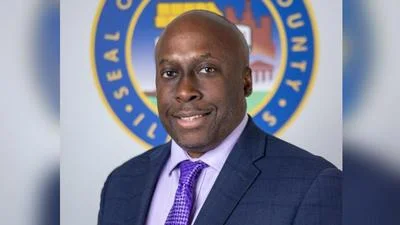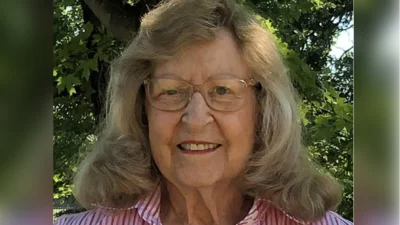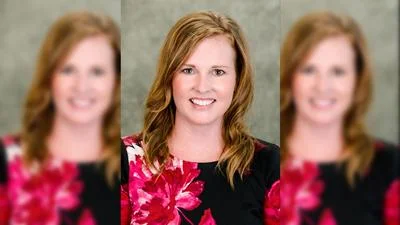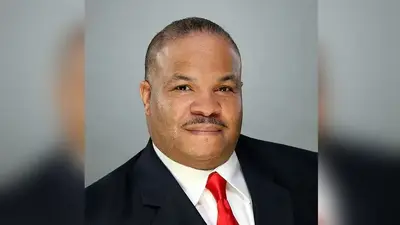U.S. Rep. Daniel Lipinski (D-3) shared the following press release on June 17:
Today, the entire Illinois Congressional Delegation sent a letter to Federal Communications Commission (FCC) Chairman Ajit Pai and the four FCC Commissioners urging the FCC to improve the nation’s broadband maps by reforming the mapping process for broadband services. The members noted that currently the mapping process lacks detail, accuracy, and granularity, meaning many underserved areas, including many rural communities in Illinois, could go without critical funding to improve broadband services. The Commission’s recently released 2019 annual Broadband Deployment Report found that more than 21 million Americans still lack access to high-speed internet service, though this number may be much higher due to inaccuracies in broadband maps. According to the FCC, only about 61 percent of rural areas in Illinois have access to fixed broadband at speeds of 25 Mbps/3 Mbps.
“As we work to repair and rebuild our nation’s infrastructure, we must ensure that those in rural America have access to high-quality and reliable fixed or mobile broadband. In addition to developing our nation’s rural economy, broadband helps expand educational horizons for students and allows rural health providers to offer more flexible and cost-effective delivery approaches,”the members wrote in a letter to Chairman Pai.
Today’s letter was signed by the entire Illinois Congressional Delegation: U.S. Senators Dick Durbin (D-IL) and Tammy Duckworth (D-IL),and U.S. Representatives Bobby Rush (D-IL-01), Robin Kelly (D-IL-02), Dan Lipinski (D-IL-03), Chuy Garcia (D-IL-04), Mike Quigley (D-IL-05), Sean Casten (D-IL-06), Danny Davis (D-IL-07), Raja Krishnamoorthi (D-IL-08), Jan Schakowsky (D-IL-09), Brad Schneider (D-IL-10), Bill Foster (D-IL-11), Mike Bost (R-IL-12), Rodney Davis (R-IL-13), Lauren Underwood (D-IL-14), John Shimkus (R-IL-15), Adam Kinzinger (R-IL-16), Cheri Bustos (D-IL-17), and Darin LaHood (R-IL-18).
Full text of today’s letter is available here and below:
June 17, 2019
Dear Chairman Pai:
We write to urge the Federal Communications Commission (FCC) to improve our nation’s broadband maps by reforming the mapping process that illustrates where fixed and mobile broadband services are available within the United States.
What should be of great concern to government, the telecommunications industry, and American consumers is the significant lack of detail, accuracy, and granularity of these broadband maps. For example, an entire census block may be considered served even though only a single location within the block has access to fixed broadband service. This misidentification could result in the denial of vital funding which could otherwise bring service to these underserved areas.
Indeed, the Commission’s recently released 2019 annual Broadband Deployment Report found that more than 21 million Americans still lack access to high-speed internet service. An overwhelming majority of these Americans are living in rural areas. However, some have called this data into question and argue that broadband connectivity is even worse than the Commission’s data illustrates. In fact, recent research shows that more than 162 million Americans are not using the internet at broadband speeds of 25 Mbps.
The challenge, in part, lies with the FCC’s current Form 477 process, which is overly reliant upon the data self-reported by service providers. We urge the Commission to explore developing a process to validate or authenticate the information produced by service providers. This will lead to more accurate and reliable data collection. Inaccuracies within the data may currently be translated onto the broadband maps, which are used to allocate important grant funding and federal financing through programs administered by the Commission, the United States Department of Agriculture, and the Department of Commerce to bring broadband access to lacking areas. A failure to allocate federal investment to where it is needed the most ultimately falls on constituents. Without sufficient broadband access, small businesses struggle to operate and students are forced to complete their homework in library parking lots just to use WiFi.
Specifically, in Illinois, we’ve seen a variety of cases that may reflect a nationwide problem. For example, some Rural Local Exchange Carriers (RLECs) have been unable to apply for or receive funding due to inaccurate maps. These RLECs have provided detailed engineering studies, collected and prepared customer “testimonial” documents, and submitted an extensive FCC petition for reconsideration regarding competitive overlap. They also have filed comments and documents with the FCC requesting a review of these core issues. Despite these efforts, inaccurate mapping has continued to hurt the ability of affected companies to expand broadband to rural communities. In one case, a small Illinois RLEC was initially declared as one hundred percent competitively overlapped due to inaccurate 477 reporting by another broadband service provider; and as a result, was deemed ineligible to receive funding. Many other small RLEC companies have attempted to secure loan and grant funding to serve our constituents, only to be denied. As a result, many rural areas, which cannot realistically be served without federal support, remain unserved. Both rural providers and consumers would benefit from a validation and challenge process to more accurately depict broadband availability and quality standards.
Therefore, as the country looks to close the digital divide between rural and urban communities through the deployment of and robust investment in fixed and mobile broadband infrastructure, the capacity to accurately depict which communities are the least connected is vital. We ask that the Commission double their efforts to improve the broadband mapping process through three specific proposals. First, develop more standardized granular reporting of broadband availability – while also balancing the burdens of reporting especially for smaller operators. Second, establish a suitable validation process by which the self-reported data from service providers can be verified by the FCC. And third, develop a process through which state and local governments, as well as other interested parties, can challenge the data displayed in the maps for accuracy while not adding unnecessary costs or delays. These three common-sense reforms would work to collectively improve the accuracy of the data being used to make decisions on billions of dollars in federal funding and financing.
As we work to repair and rebuild our nation’s infrastructure, we must ensure that those in rural America have access to high-quality and reliable fixed or mobile broadband. In addition to developing our nation’s rural economy, broadband helps expand educational horizons for students and allows rural health providers to offer more flexible and cost-effective delivery approaches.
Thank you for your attention to this matter. We look forward to working with you as the Commission works to ensure that every American has access to dependable broadband service.
The original press release can be found here.






 Alerts Sign-up
Alerts Sign-up